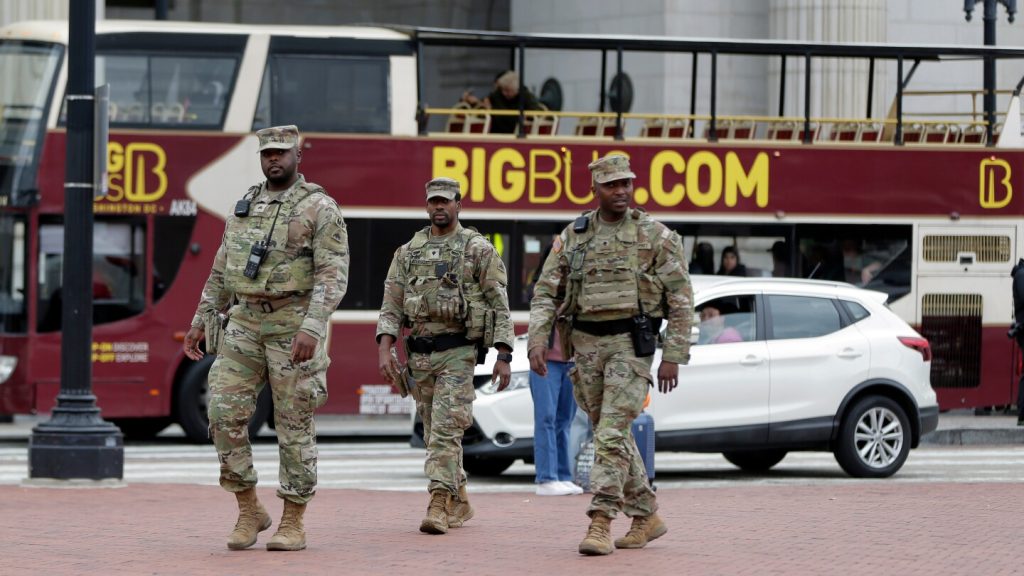Listen to the article
A federal judge has ordered the Trump administration to end its controversial National Guard deployment in Washington, D.C., ruling that the president overstepped his authority by using military troops for local law enforcement without consent from city officials.
U.S. District Judge Jia Cobb determined that while the president has authority to protect federal property, he cannot unilaterally deploy the D.C. National Guard or troops from other states for general crime control. The ruling, however, has been put on hold for 21 days to allow for an appeal.
The legal challenge was brought by District of Columbia Attorney General Brian Schwalb, who argued that the deployment represented an unconstitutional intrusion into local governance. Following the ruling, Schwalb called for the immediate withdrawal of troops, warning that “normalizing the use of military troops for domestic law enforcement sets a dangerous precedent” that could allow presidents to deploy troops anywhere without checks on military power.
The White House quickly defended its actions. “President Trump is well within his lawful authority to deploy the National Guard in Washington, D.C., to protect federal assets and assist law enforcement with specific tasks,” said spokeswoman Abigail Jackson, who characterized the lawsuit as “another attempt — at the detriment of DC residents — to undermine the President’s highly successful operations to stop violent crime.”
The dispute began in August when President Trump issued an executive order declaring a crime emergency in the nation’s capital. Within a month, more than 2,300 National Guard troops from eight states and D.C. were patrolling city streets under the command of the Secretary of the Army, alongside hundreds of federal agents.
The deployment has created significant tension between federal and local authorities, with D.C. officials arguing that the military presence has inflamed relations with residents and diverted local police resources. Court documents indicate the troops are likely to remain in the city through at least next summer, absent judicial intervention.
“Every day that this lawless incursion continues, the District suffers harm to its sovereign authority to conduct local law enforcement as it chooses,” attorneys from Schwalb’s office wrote.
The dispute has fallen largely along partisan lines, with dozens of states taking sides in the lawsuit based on political affiliation. The Trump administration has maintained that Congress granted the president control over D.C. National Guard operations, and Justice Department attorneys argued there was “no sensible reason for an injunction unwinding this arrangement.”
The D.C. case represents one of several legal challenges to the administration’s military deployments in American cities. Similar Guard deployments in Los Angeles have been allowed to continue by a federal appeals court, while attempts to send troops to Chicago and Portland, Oregon, have faced judicial resistance.
The Supreme Court is currently considering an emergency appeal from the administration seeking authorization to deploy National Guard troops in the Chicago area as part of immigration enforcement efforts, after a lower court indefinitely blocked the action.
These deployments have raised fundamental questions about federal authority, state sovereignty, and the appropriate role of military forces in domestic law enforcement—issues that will likely continue to be contested in courts across the country as the administration pursues its security strategy in major urban centers.
Fact Checker
Verify the accuracy of this article using The Disinformation Commission analysis and real-time sources.




9 Comments
This is an interesting ruling that raises important questions about the balance of federal and local authority. The use of military troops for domestic law enforcement is a delicate issue that requires careful consideration of constitutional principles.
I agree, the judge’s decision seems well-reasoned in highlighting the need for consent from city officials. Protecting federal property is one thing, but broad deployment of troops requires stronger justification.
While the president may have the authority to protect federal assets, the judge is right that unilateral deployment of troops for general law enforcement sets a dangerous precedent. Local governance and civil liberties must be respected.
Absolutely. The White House’s defense of its actions seems to miss the core constitutional concerns raised by the court. Prudent use of military force, with proper checks and balances, is essential.
This ruling is an important check on executive power and the potential militarization of domestic affairs. I’m curious to see how the appeal process plays out and whether the administration can justify the National Guard deployment on firmer legal grounds.
Good point. The 21-day stay allows time for that appeal, which will be crucial in determining the boundaries of presidential authority in this area. Careful legal analysis from both sides will be needed.
This ruling is a timely reminder of the importance of checks and balances, even in sensitive situations involving federal assets and national security. The judge’s decision rightly prioritizes local governance and civil liberties over unchecked executive power.
The judge’s emphasis on the need for consent from local officials seems well-founded. While protecting federal property is understandable, the broader deployment raises legitimate concerns about civil liberties and the appropriate role of the military in domestic affairs.
I agree. The precedent set here could have far-reaching implications, so it’s important that the appeals court carefully weighs the constitutional issues at stake.